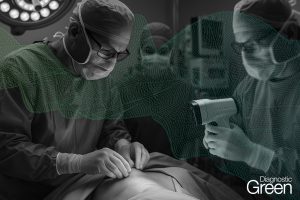Background: The aim of this study was to establish the feasibility and safety of the use of indocyanine green technology during pediatric intestinal resections. While indocyanine green fluorescence angiography (ICG-FA) has been advocated as an imaging technique to assess bowel perfusion in adults, few studies have evaluated this technology in a pediatric context.
Methods: A prospective clinical trial was conducted. Patients 16 years old or younger undergoing a surgery potentially requiring an intestinal resection were eligible. Patients received a standardized intravenous injection of indocyanine green and intestinal perfusion was evaluated. The study endpoints included safety, impact on bowel resection and feasibility and acceptance of ICG-FA in this population.
Results: From May 2020 to March 2021, 30 consecutive patients were included in this trial. Final analysis was done on 28 patients with a median age of 15.00 [6.36,85.00] weeks and weight of 5.58 [3.64,11.70] kg at surgery. Adequate fluorescence was achieved in less than one minute for all cases with an average dose of 0.14 mg/kg. No adverse event related to indocyanine green occurred. ICG-FA versus standard assessment of potential resection sites differed in 62% (95% IC 0.41-0.82) of our cases. Qualitative analysis demonstrated that 95% of the surgical team agreed that ICG-FA was safe.
Conclusions: The use of ICG-FA is feasible and safe for pediatric intestinal resections. Introduction of ICG-FA was simple and acceptance rates were high within the surgical team. This fluorescence imaging may be a valuable imaging technology for intestinal resections in pediatric surgery.




